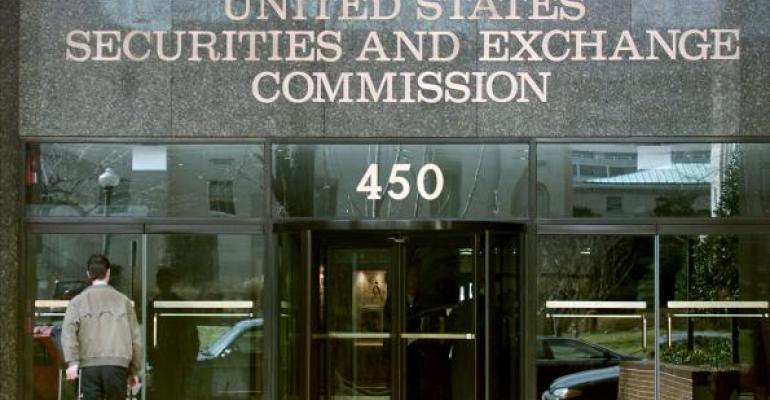The Securities and Exchange Commission released its examination priorities for 2018. In it, the regulator says its examiners will pay closer attention to the fees that retail investors are paying to advisors as well as the disclosure and calculation of those fees.
“Every dollar an investor pays in fees and expenses is a dollar not invested for his or her benefit,” the SEC said. “Therefore, the proper disclosure and calculation of fees, expenses, and other charges investors pay is critically important.”
The regulator says it will focus on whether disclosures match up with the way fees and expenses are being charged. Fees charged in advisory accounts are also under on the radar.
“We will also focus on firms that have practices or business models that may create increased risks that investors will pay inadequately disclosed fees, expenses, or other charges,” the letter said. That includes advisory personnel that may recommend certain mutual fund share classes with higher fees; orphaned accounts that have not been assigned to a new advisor; and advisors who have moved from a commission-based model to fee-based model.
The letter also emphasizes the proper disclosure of conflicts of interest, especially when it involves higher cost or riskier products.
In the past, the SEC has made fee disclosure a priority, but it couched it as a share class issue, said Brian Hamburger, founder of the Hamburger Law Firm and MarketCounsel. Now, it’s more expansive than that.
“This is one of those areas where by examination, they’re going to be creating a lot of the standards that advisors will come to know and love over the next few years,” Hamburger said. “There’s no specific rule that says that investment advisors have an obligation to go out there and find the cheapest or least expensive investment for that particular objective. That said, the SEC is expanding upon their notion of, ‘Hey, as a fiduciary you have an obligation to act in their best interest, and isn’t it in their best interest to buy them the least expensive product to achieve those objectives?’”
Hamburger calls that “regulatory bootstrapping.”
“Here, you’re finding the SEC imposing an obligation on advisors to be smart shoppers,” he said. “It’s a great nod to the Bogleheads out there. John Bogle’s been saying this for years, that yes, investment performance is one side of the equation, but you cannot be ignorant as to expenses.”
And if there is a conflict of interest, where an advisor is buying a fund with a higher expense ratio to realize some kind of benefit from the fund provider, advisors have an obligation to disclose that.
The bundling of products and services has become very commonplace in financial services, said Stephen P. Wilkes, partner at The Wagner Law Group.
“It’s become very complex, and sometimes the challenge is to be able to make these recommendations in a manner which is devoid of conflict—that really serves the client well,” he said. “Many advisors do that, but sometimes they’re stumbling along the way. So I think there’s been an overarching trend toward transparency and disclosure in both the taxable and non-taxable retirement market over the last 15 years, and it continues apace.”
Brendan Furey, vice president of advisory services and counsel at AdvisorAssist, said a common issue among investment advisors is not understanding how fees are being calculated by their portfolio management system or custodian.
“The common error that we see here is that advisors don’t know whether interest, cash balances and dividends are being included when they’re calculating these fees for clients, and in that case the examiner is saying, ‘You don’t know what your own policy is on those types of matters, and most of the time you have been including those as part of your fees because it results in a slightly higher fee,’” Furey said.
Other priorities mentioned in the letter related to investment advisors include cybersecurity, wrap fee programs, robo advisors, mutual and exchange traded funds, cryptocurrencies, senior investors and never-before-examined registered investment advisors.

